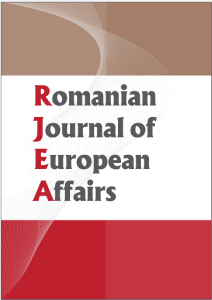Crise: la sortie par le haut, c’est l’Europe
Alain Lamassoure
Abstract:
The crisis is not the root cause of the collapse of the European Union’s economy; it is its revealing sign. The protectionism temptation has not been overcome at the European level, and yet Europe is the right path towards overcoming the crisis. We must double the growth potential of the Union. To solve the European budget problem, we have to choose new own resources. Beyond the Community budget, the financing of European policies and of the common targets clearly encompasses national budgets. The economic policies coordination has to involve National Parliaments. An annual debate among national parliaments, with the European Parliament, on budgetary orientations of each Member State would have a great pedagogical value. The time has come to give Europe the financial component which lacks to its institutions. It will be a complex, protracted and very difficult negotiation. The Belgian presidency could gather a European financial conference which mandate would be to put together in a financial Charter the principles that the Union needs to finance its policies.
Keywords: economic crisis, European Parliament, European Union, post-crisis recovery
Economic and Legal Aspects of the Planned Damages Actions for the Breaches of EC Antitrust Law
Elena Isac
Abstract:
This paper investigates the planned damages actions for breaches of EC antitrust law in order to assess their impact on consumer welfare. It first examines the current legal situation and concurs that the European Union needs to regulate damages actions for breaches of EC antitrust law so that a higher number of consumers could be compensated for their losses. This paper then discusses the main legal provisions proposed by the Commission in the Green and in the White paper on damages actions for breaches of EC antitrust law. The analysis of these proposed legal provisions is done using arguments specific to the economic analysis of law. It is demonstrated that most of these proposed legal provisions will enhance consumer welfare but that there are also proposed legal provisions which will damage consumer welfare. The paper concludes that the planned damages actions for breaches of the EC law will be an improvement compared to the current situation. However, the Commission should amend some of the proposed legal provisions in order to help consumers further.
Keywords: antitrust law, consumer welfare, EC law, White Paper
Features of WTO Dispute Settlement. The Standing of the EU
Costin Horia Rogoveanu
Abstract:
The WTO has an innovative system of dispute settlement, with the following features: sui-generis, integrated, resolving the disputes according to the WTO agreements, excluding unilateral solutions, interstate system. These features are detailed in the present article. Another level of analysis concerns the standing of the EU in the WTO, in general, and in the Geneva proceedings for dispute settlement, in particular. Generated by the quality of the European Communities statute as an original member of the Organisation, the EU has become one of the main users of the WTO dispute settlement system. One of the main challenges of the WTO dispute settlement mechanism is the implementation of decisions. In view of the cases assessed, while the execution record of the EU is a quite satisfactory one, it is apparent that implementation of decisions in more intricate cases creates difficulties at the Union level.
Keywords: competencies, European Union, Lisbon Treaty, World Trade Organisation (WTO)
Agriculture en Roumanie: définir l’activité pour un ciblage de la politique des structures
Marie-Luce Ghib, Marielle Berriet-Solliec
Abstract:
Like the former member States of the EU in 1962 at the beginning of the CAP, today Romania focuses mainly on the restructuring and the modernisation of its agriculture. In a general context in which OECD advocates the targeting of farm holdings to achieve a better efficiency of agricultural policies, we analyse in this paper the difficulties for a definition for targeting the units in the Romanian context. The article draws parallels between different types of production structures in Romania, as they can be defined with the current statistical apparatus, and the objectives aimed by the principal measures of the rural development policy. It concludes with an analysis of the adequacy of the system chosen in Romania to accompany the modernisation, the restructuring and the reorientation of farm holdings.
Keywords: agricultural policies, CAP second pillar, evaluation of public policies, rural development
The European Union and the Balkans: between Symbiosis and Integration?
Kyriakos D. Kentrotis
Abstract:
The European Union continues to constitute an incomplete economic-political entity at intergovernmental and supranational level. The EU is seeking to establish appropriate functional superstructures extending beyond the narrow confines of trade, the economy and free market rules to accommodate its integral progress as a new force for prosperity, democracy and peace in the world. On the map of the Balkans, the local political actors continue to define their choices in line with their historic experience and stereotypes, especially as regards their neighbours and the Great Powers of the moment. The Balkan countries, which in any case are still seeking to consolidate their conventional state structures, need much more time to find their place within this unfinished supranational European structure. In both cases the actors involved, whether in the EU or in the Balkans, are grappling with the challenges of global politics from their different starting-points, but it is not easy to overcome the boundaries of their national sovereignty.
Keywords: Balkans, European Union, geopolitics, International Relations
Political Implications of the Eastern Partnership for Ukraine: a Basis for Rapprochement or Deepening the Rift in Europe
Alexandra Shapovalova
Abstract:
Being a logic continuation of the European Neighbourhood Policy endowed with several innovative instruments the Eastern Partnership inherited predominantly depoliticized nature with normative convergence remaining the centrepiece of the EU policy towards East European states. But even deprived of clear political grounds the EaP has significant political implications for the Eastern Europe as a whole and particularly for Ukraine which has the most advanced level of cooperation with the EU among the EaP partner state. After exploring these political implications it becomes clear that Eastern Partnership does not offer a feasible way out of major dilemmas the EU faces in its policy towards East European states and in relations with Russia. So far it contributes to complicating political context for Ukraine without enabling it to solve basic foreign policy tasks. But at the same time it contains valuable instruments which in case of modification of the laid framework and of conceptual approaches underpinning the EaP may be utilized for political stabilization of the European continent.
Keywords: Eastern Europe, Eastern Partnership, European Neighbourhood Policy, European Union, Ukraine
MEPs 2.0? Europarliamentarians talking to Voters in the Internet Era
Stefano Braghiroli
Abstract:
This paper systematically looks at the nature of MEPs’ internet-based “web tools” in the past EP legislature and at the extent to which their features reflect the complex nature of the EP environment (“Europeanization of communication”). To conduct this operation, a variety of structural and graphic features of MEPs’ websites have been identified, which have been made statistically analyzable, following a process of standardization and categorization, and were finally collected into a unique dataset. The preliminary figures obtained have been then controlled for a wide array of pluri-dimensional factors, operating both at micro-/individual-level and at macro-/country-level. Conceived as an explorative study towards clearer and more accurate understanding of MEPs’ internet-based communication styles and political strategies, our analysis aims at providing a stepping stone for further investigation in this direction.
Keywords: e-politics, electoral communication, European Parliament, interactivity, MEPs
Book Review: Radu CARP, Dumnezeu la Bruxelles. Religia în spatiul public european
Mihai Sebe
Abstract:
The religious phenomenon has always generated intense feelings that have often undermined the scientific analysis and the academic debate. In an European political space dominated by secularism Radu Carp analyses the present and future of religion within the European framework. Religions and churches are now a part of the European public sphere and their actions influence public opinion. Although the reference to God lack from the EU official documents the influence and lobby of religious entities are powerful. Churches must now reinvent themselves in order to become more adapted to the new conditions.
Keywords: Christianity, European Union, God, lobby, religion, Romania






